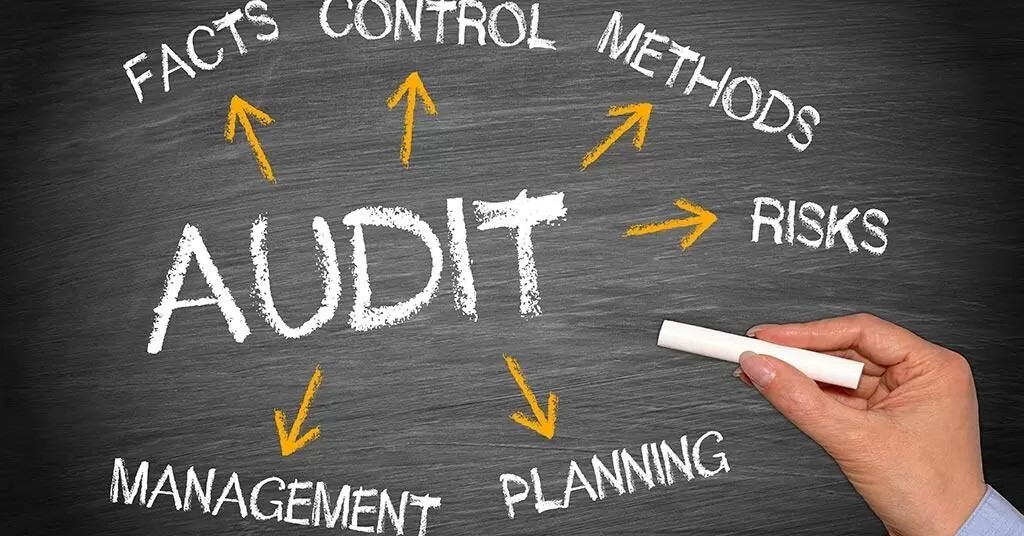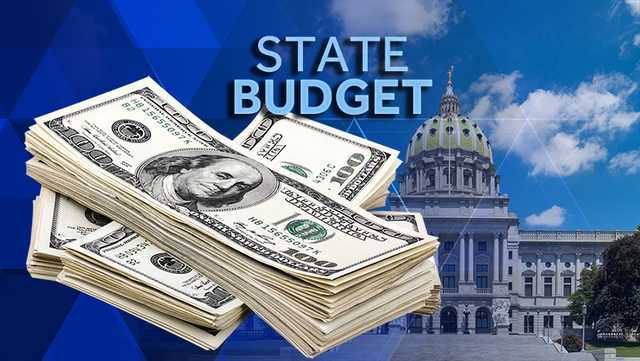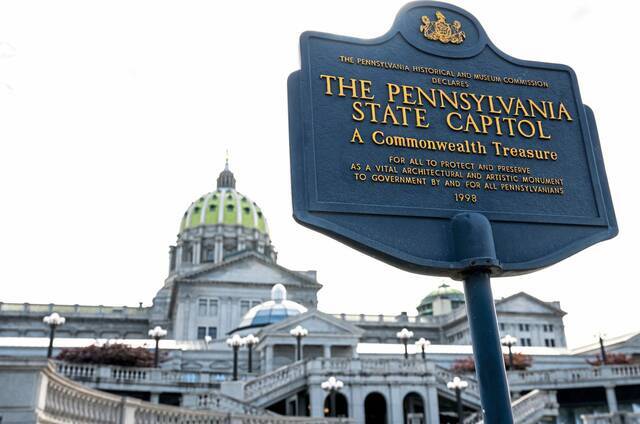Pennsylvania Cyber Charter School Funding Reform
Did You Know?
The Dover Area School District must pay the tuition for every student who attends a cyber charter school out of the district budget. The cost for each student is:
Regular Education student- $13,173
Special Education student- $31,530
DASD will pay $3.6 million to cyber charter schools in 2024-2025, even though it costs significantly less to educate a student online than in a traditional school setting.
These dollars come from property taxes in Dover. This financial pressure often forces districts to raise property taxes to cover rising cyber charter payments.
Cyber charter schools use taxpayer dollars for other expenditures, including
Staff bonuses and gas cards
Grocery and gift cards for families
Reimbursing families for entertainment outings
Advertising- TV commercials, billboards, etc.
While school districts make cuts and raise property taxes to pay inflated cyber charter tuition bills, cyber charter schools are awash in so much excess funding that they simply cannot spend the money.
Pennsylvania is one of only a few states that does not regulate how cyber charter schools use public funds; as a result, they are spending millions of tax dollars on non-educational expenses, including advertising, lobbying, extravagant events, and more
Despite the out-of-control spending, Cyber charter school report abysmal results:
The four-year cohort graduation rate for cyber charters averages just 65%, more than 20% lower than the state average of 87%.
Every cyber charter school is currently performing in the lowest 5% of schools in Pennsylvania.
Student performance in cybers falls drastically below state averages in English, Math, and Science proficiency.
Math scores are especially alarming. Over half of the cyber charters (9 of 14) had fewer than 10% of students scoring proficient.

If you’re a taxpayer, parent, school employee, or community member, this affects you. And we need your help to change it.
What is it?
Cyber charter schools are online-only public schools that operate independently but are funded by local school districts. When a student living in the Dover Area School District enrolls in a cyber charter, our district must pay that school a tuition fee, even though we have no oversight of their spending or academic performance. Most of these dollars come from property taxes raised at the local level.
The problem? Pennsylvania’s cyber charter schools have been operating since 2002, but how they are funded is still based on a 1997 law designed for brick-and-mortar charter schools.
This outdated system means that:
|  |
Because of this broken funding model, DASD and other districts are overpaying millions to cyber charters, spending on things unrelated to educating students. This drains local education budgets and shifts critical resources away from our students.
It is important to note that this issue is not about limiting school choice. It's about pro-fiscal responsibility. The call for reform focuses on ensuring that taxpayer dollars are spent responsibly and that cyber charter schools are funded based on actual costs. Without reform, this outdated system will continue to place an unnecessary financial burden on taxpayers while failing to improve student outcomes. Please look at the websites below to see how cyber charter schools have used taxpayer dollars.
- View Ed Voters’ report on how one cyber charter school uses our tax dollars.
- Cyber Charter Waste of the Week provides examples of how specific cyber charters waste tax dollars.
Why Does It Matter?
Taxpayer Dollars Are Wasted: Charter school tuition rates are not based on what it costs them to educate its students. It's based on school district expenses, leading to excessive payments. (Source: Education Voters of Pennsylvania)
Lack of Accountability: Unlike public schools, cyber charter schools operate with minimal oversight, spending tax dollars on non-educational expenses like advertising, lobbying, and excessive executive compensation.
Academic Performance Concerns: A study in 2019 by CREDO, the Center for Research on Education Outcomes at Stanford University, showed that cyber charter students perform significantly worse than their peers in traditional schools, losing an average of 106 days in reading and 118 days in math annually.
Significant Budget Burden: The high cost of cyber charter tuition takes away key funds that could have a significant impact on our school community. For the 2025-2026 school year, DASD estimates a $3,664,990 expenditure to cyber charter schools.
How Can I Help?
Contact your legislators to tell them we need charter funding reform now.
Representative Marc S. Anderson
Not Sure What to Say?
Use these templates. You can download the documents and make them your own.
Sample Talking Script
Parent/Guardian Letter/Email
DASD Staff Member Letter/Email
Community Member Letter/Email
Letter/Email for Any Constituent
The Case for Change: Audit Results,
Recent Wins, and the Road Forward
PA Auditor General Cyber Charter Performance Audit
 | “I am now the third auditor general to look at this issue and the third to come to the same conclusion: the cyber charter funding formula needs to change to reflect what is actually being spent to educate students and set reasonable limits to the amount of money these schools can keep in reserve.” Auditor General DeFoor |
About the Audit
Pennsylvania Auditor General Timothy L. DeFoor released a performance audit of five cyber charter schools, which shows that from 2020 to 2023, they legally increased revenues by $425 million and reserves by 144%, due in part to an outdated funding formula that does not use actual instruction costs to determine tuition, set guidelines for spending, or set limits for cyber charter school reserve funds.
The audit has made clear that cyber charters are being paid more than they need to educate students and are spending tax dollars in ways that would be unacceptable for a district.
You can read the full audit report on the Pennsylvania Department of the Auditor General website.
Key Highlights From the Budget
The audit highlighted significant issues with cyber charter funding, including:
$425 million increase in cyber charter revenues from 2020 to 2023 due to an outdated funding formula.
144% growth in reserve funds for cyber charters, despite no regulation on how much they can accumulate.
Extravagant spending of taxpayer money on staff bonuses, gift cards, vehicle payments, and property purchases unrelated to online education.
Unequal and Excessive Cyber Charter Tuition Rates
A key issue with Pennsylvania's cyber charter funding model is the massive variation in tuition rates paid by school districts—rates not based on actual student needs or educational costs.
Regular Education Tuition: School districts paid cyber charter schools between $6,975 and $25,150 per student despite their significantly lower operational costs than traditional public schools.
Special Education Tuition: Cyber charter schools received between $18,329 and $60,166 per special education student, regardless of their needs.
Flat-Rate Funding Issues: Unlike public schools, which receive state special education funding based on a tiered system that aligns funding with actual student needs, cyber charters receive a flat rate per student. This means a student with mild needs gets the same funding as a student with significant disabilities, leading to massive overpayments.
Excessive Costs Without Oversight: These inflated payments result in cyber charters accumulating large reserves while school districts struggle to cover costs for students with actual, high-cost special education needs.
A Note Regarding the Audit:
Some legislators have noted that the Auditor General’s 2024 report uses data from before the 2024–25 state budget reforms. While that is true, the report still reveals fundamental flaws in the way Pennsylvania funds cyber charter schools — flaws that remain largely unresolved. Until the state adopts a funding model that aligns with the cost of cyber education, school districts will remain under financial strain, and taxpayers will continue to overpay. |  |
Recent Reforms: A Step Forward, But Not the Finish Line
In response to calls from public school districts across Pennsylvania, the 2024-25 state budget introduced several reforms to cyber charter school operations and funding. We sincerely thank our local legislators, Senator Kristin Phillips-Hill, Representatives Seth Grove and Marc Anderson, and the Governor, for taking these important first steps. These efforts show a growing recognition that the current funding model places an unsustainable burden on public schools and taxpayers. However, they fall short of addressing the full scope of the issue.
What is Included in the 2024-2025 State Budget?
  |
|
Why is More Change Urgently Needed?
| While these reforms represent progress, they do not solve the systemic issue: cyber charter schools continue to receive the same per-student tuition as brick-and-mortar schools, despite having significantly lower operational costs. Public school districts are still required to divert millions in taxpayer dollars—originally intended to support our local students and schools—to fund cyber charter schools. |  |
A one-time reimbursement or improved oversight does not equate to long-term, sustainable reform. Without a fair and transparent funding formula that reflects the actual cost of educating a student in a cyber setting, Pennsylvania’s public schools will continue to suffer.
We thank our legislators for the steps taken—but we must go further.
Proposed Reforms: Turning Momentum Into Meaningful Change
We advocate for commonsense reforms to fix the broken charter school funding system:
End Overpayments to Cyber Charter Schools: Develop a more equitable funding formula that is in line with the actual cost of educating a child in a virtual environment. Governor Shapiro has suggested a statewide base tuition of $8,000 per student, saving taxpayers $278 million annually.
Apply the State’s Special Education Formula to Charter Schools: Ensure funding matches the actual cost of educating students with disabilities.
Increase Accountability & Transparency: Charter schools are exempt from any educational mandates that public school districts must follow. Require charter schools to meet the same financial and academic standards as traditional public schools.
Strengthen Local Control: Limit the power of the unelected Charter Appeals Board to overturn local school board decisions.
Prevent Discriminatory Enrollment & Discipline Practices: Ensure charter schools serve all students equitably.
What We’re Doing About It?
What We Offer Now: Dover Cyber Academy
 | The Dover Area School District is proud to offer the Dover Cyber Academy, our K–12 online program that provides flexible, high-quality education while keeping students connected to our community. Dover Cyber Academy (DCA) offers personalized learning plans, age-appropriate instruction, and access to extracurriculars and local supports. It’s an option that meets modern needs without losing our local connection. Whether you’re currently exploring options or have left DASD in the past, we welcome conversations about how DCA or returning in-person could be the right fit for your child. |
Exploring Why Families LeaveWe know that families choose online education for many different reasons. That’s why we’re taking a closer look at the root causes behind why students leave DASD, so we can respond with care, insight, and meaningful solutions. Continuing to EvolveWe’re committed to making DCA the best it can be. From curriculum development to student support, we are continuously improving our program so families can feel confident choosing a local solution, one that’s flexible, student-centered, and grounded in our community values. |   |




